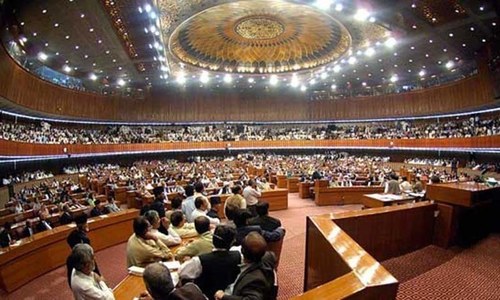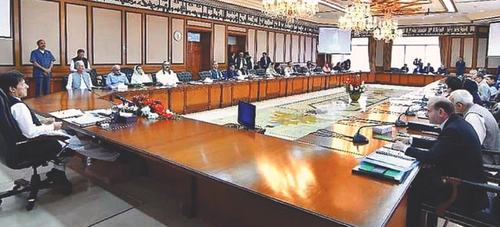DAYS after the alarming incident between the army and Pashtun Tahaffuz Movement protesters at a security check post in North Waziristan, the persisting lack of clarity surrounding the episode remains deeply troubling.
Though it is uncertain how the clash was initiated, two aspects are clear. First, the protesters were raising provocative slogans around soldiers guarding their post in a sensitive area. The PTM’s leadership must be mindful of this singular aspect of their style of protest that many had warned would be counterproductive to their cause.
Second, the fact that several soldiers also received injuries points to armed individuals being present at the scene. This is a departure for the PTM, which had maintained a non-violent stance for well over a year. It would be an unfortunate though not implausible development, given the risks of even the most peaceful of movements resorting to violent means in the face of repeated, heavy-handed use of force to quell them.
As leaders of the opposition parties in parliament and the Human Rights Commission of Pakistan have pointed out, denying the PTM its right to peaceful protest and arresting its activists en masse is ultimately detrimental to the state and its citizens. Indeed, this country needs no reminder of the potential for catastrophic consequences when citizens making rights-based demands are summarily dismissed instead of engaged with.
But all is not lost, provided that recalcitrance is set aside, and courage and clarity of purpose guide the way. Two immediate actions are required to defuse tensions and prevent further escalation. First, it is essential to dispel intensifying mistrust on all sides by constituting a parliamentary fact-finding body to get to the truth of what transpired on Sunday.
Moreover, the authorities and the PTM must immediately come to the table to reiterate their common goals of lasting peace and rule of law, and use that as the basis on which to conduct honest, productive talks. For any lasting resolution, it must be acknowledged that an entire generation has grown up in the historically disenfranchised region of erstwhile Fata against a backdrop of seemingly unending conflict.
The grievances of these disaffected tribal youth — who have experienced more than their fair share of death, displacement and despair — require a politically brokered solution. Pakistan needs a long-term, multi-stakeholder process to address the issues that the PTM — and, indeed, human rights groups — have long been raising.
Published in Dawn, May 29th, 2019










































